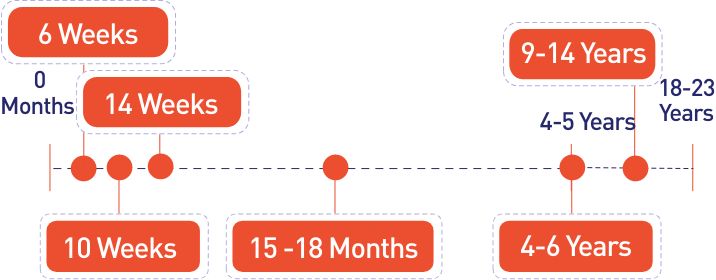If your child has experienced an allergic reaction or hypersensitivity to any previous diphtheria-containing vaccination, it would be advisable to consult a doctor before their next diphtheria vaccination.
Diphtheria vaccinations are to be postponed in cases of acute severe febrile illness (fever that commonly persists for about a week). Inform your paediatrician in cases of allergies or illnesses following any vaccinations.














